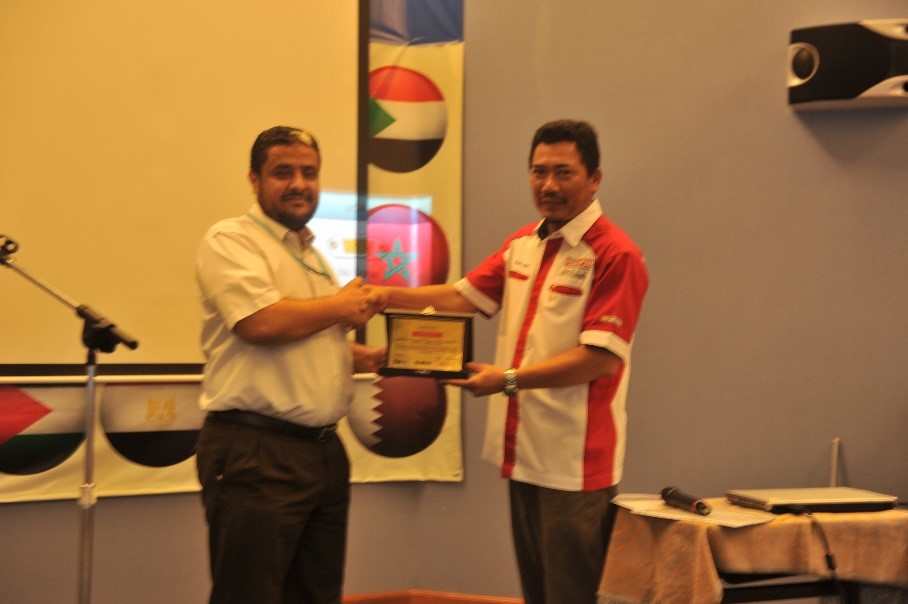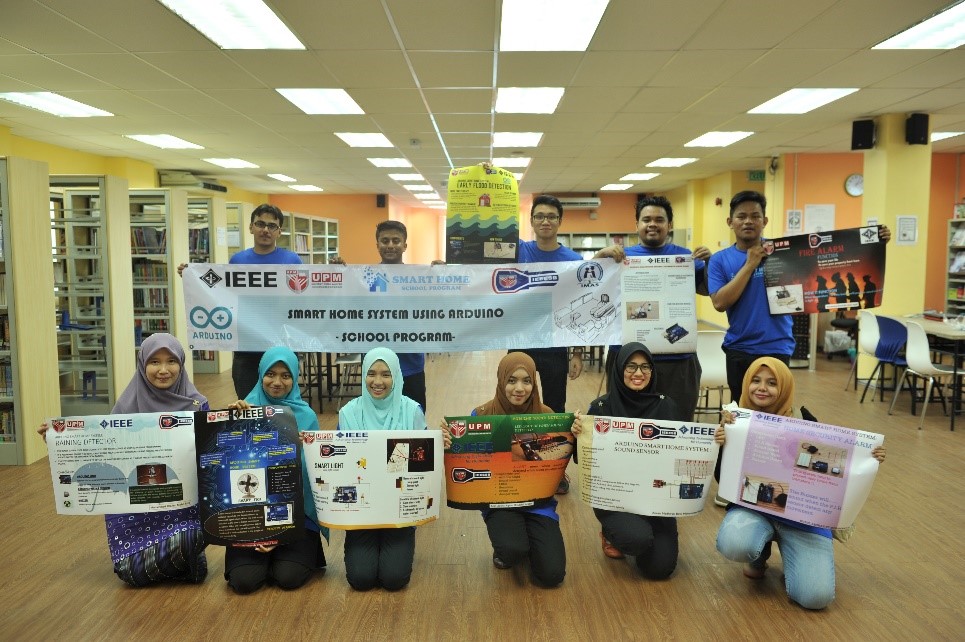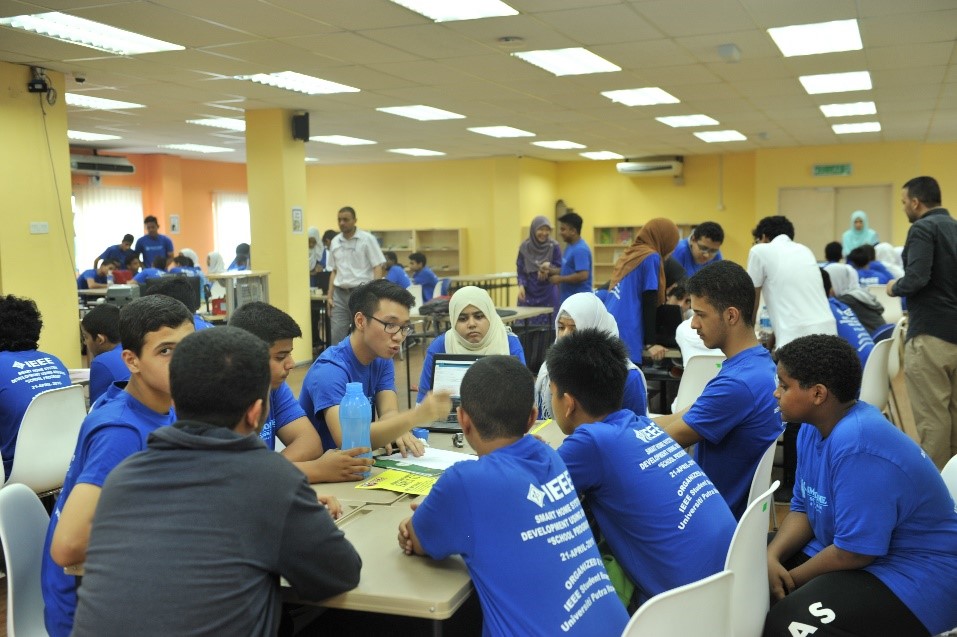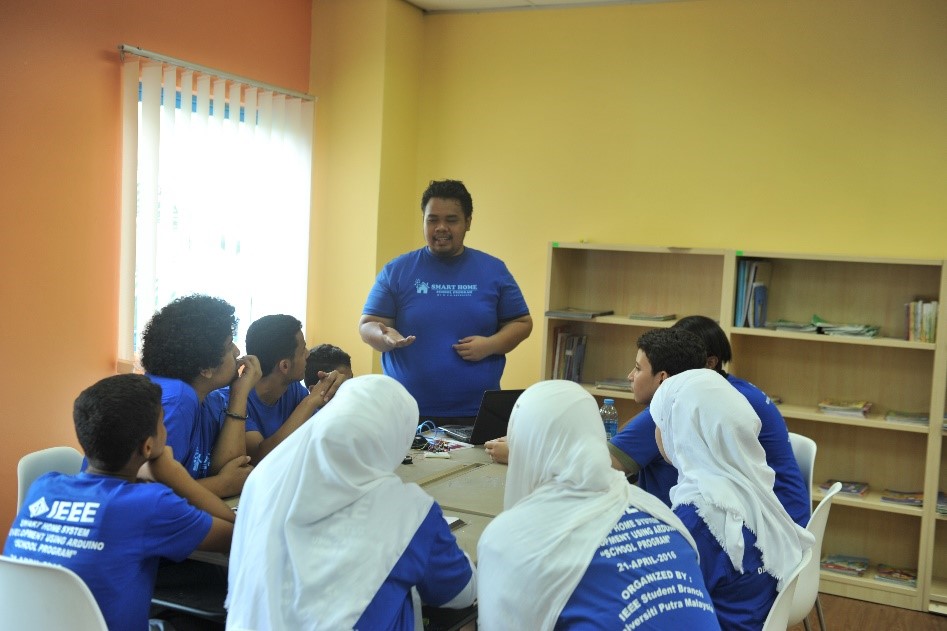“Smart Home Development Using Arduino” was the theme selected for school program this year at introduced on the 25 April 2016 at the International Modern Arabic School (IMAS), Putrajaya. This workshop was attended by 59 students and facilitated by 10 students from Bachelor of Engineering (Electrical and Electronics), UPM. IEEE Student Branch UPM and IMAS jointly organized the event.
The aim of the program is to introduce the concept of smart home to the secondary school students and promote UPM as a place to study after leaving the school. During the program, participants were exposed to engineering thinking skills, teamwork and leadership skills. The learning techniques used during the workshop is learning by doing.
The workshop begins with opening remarks from Assoc. Prof. Dr. Wan Zuha Wan Hasan, the Head, Department of Electrical & Electronic Engineering. Then the students were briefed on the physical view and functions of each component on the Arduino Uno board followed by demonstration of smart home system applications. During this demonstration, each facilitator was given a booth to showcase their project.
The school students were divided into groups, where each group spent about 15 minutes at each booth. During this time, the facilitators demonstrated the project and explained the interesting facts about their project to the students. Then, the groups move to other booth, and keeps rotating until all groups had visited all booth and demonstrated them.
At the end of the workshop, each group will choose a booth and dissemble all components on the board and then try to re-build the system by following the schematic diagram shown in posters and under the supervision from the facilitators.
At the end, the program was conducted successfully, where all the students were excited because they have learnt something new. Some students even requested from us to send them the details of the components we used during the workshop, as they are interested to build their own smart home system at home. The name of components, codes of the system, schematics diagram of the projects were given to the schools as a token of appreciation from IEEE SB UPM.
We appreciate the IMAS School’s administration for cooperation and financial support in making this workshop a successful event.





